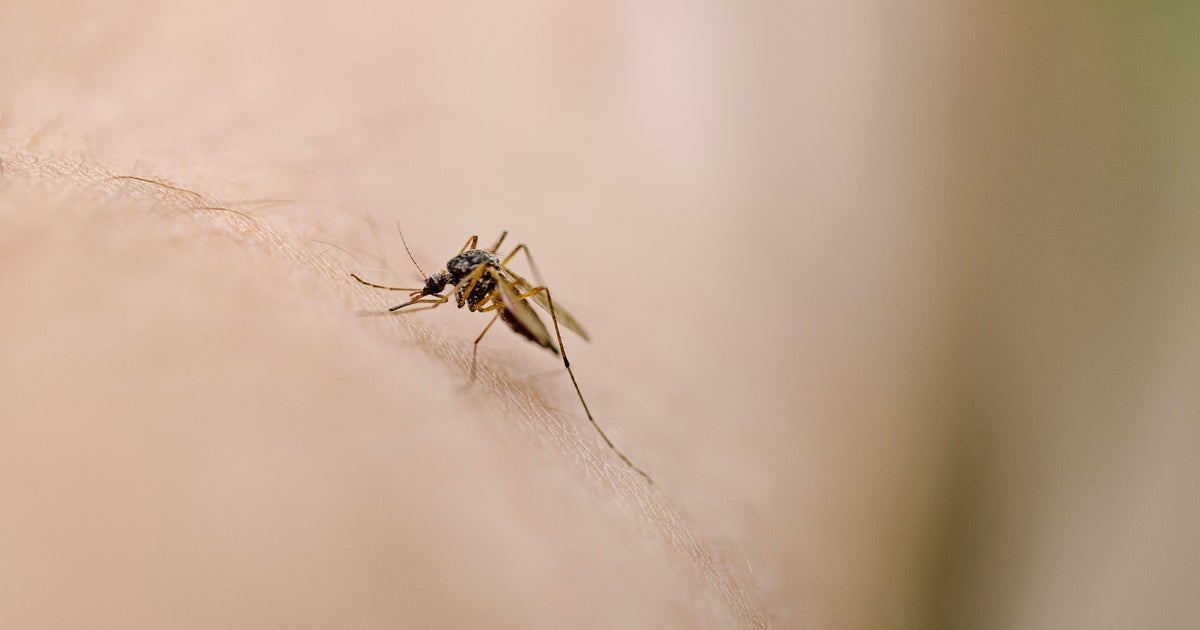The five ticks most likely to bite people in Michigan, health experts say
(CBS DETROIT) - The weather is getting warmer in Michigan, which means residents should remember to be cautious about ticks.
Although ticks are present throughout the year, they are most active during the warmer months.
If you're working in the yard or planning a summer camping trip, these are the five most common ticks in Michigan to be aware of, according to the Michigan Department of Health and Human Services:
American dog tick
The American dog tick, or Dermacentor variabilis, is located across Michigan's forests and grassy areas and are typically active from early May to November.
These types of ticks bite humans and companion animals. Rocky Mountain spotted fever and tularemia are diseases that people can get from these tick bites, but they are rare in Michigan.
Blacklegged tick
Blacklegged ticks, or Ixodes scapularis, is located in just about every county throughout Michigan and the ticks carry Lyme disease, the most common tick-borne disease in the state.
They are found on low forest vegetation, and often along trails.
Lone star tick
Lone star ticks, also known by Amblyomma americanum, are sometimes found in grassy or wooded areas in Michigan. Adult female ticks have a "lone star" spot on them, hence the name.
They are "an aggressive biter of humans and companion animals," according to health experts.
Bites from lone star ticks can cause alpha-gal syndrome, a "serious, potentially life-threatening allergic reaction" that happens when someone eats red meat or other products that have alpha-gal, which is a sugar molecule found in most mammals.
Symptoms of alpha-gal include the following:
- hives
- indigestion
- diarrhea
- itchy rash
- nausea or vomiting
- heartburn
- cough, shortness of breath or difficulty breathing
- drop in blood pressure
- swelling of the lips, throat, tongue or eye lids
- dizziness or faintness
- severe stomach pain
The only treatment for alpha-gal at this time is avoiding triggering foods, so the CDC advises people to use prevention methods to avoid tick bites.
Woodchuck tick
The woodchuck tick, or Ixodes cookei, is a type of tick most often found on pets in Michigan.
They are usually found near skunk and woodchuck dens and bite companion pets near the dens. Occasionally, these types of ticks will bite humans and in rare cases spread the powassen encephalitis disease.
Brown dog tick
The brown dog tick, or the Rhipecephalus sanguineus, can sometimes be found in Michigan. They can live and breed in indoor conditions and are often present at kennels and shelters.
Health experts say good hygiene help prevent infestations.
These ticks carry the rocky mountain spotted fever, canine babesiosis and canine ehrlichiosis.
How to prevent tick bites and diseases
Health experts also shared some tips for preventing bites and tick-borne diseases.
- Use insect repellents with no more than 30% DEET
- Use repellents that contain permethrin on clothes
- Check skin and clothes for ticks after being outside
- Visit doctor if you have a fever, rash or body aches
The Michigan Department of Health and Human Services put together a guide with more information about what the ticks look like, and how some of the rare diseases associated with tick bites affect humans.







